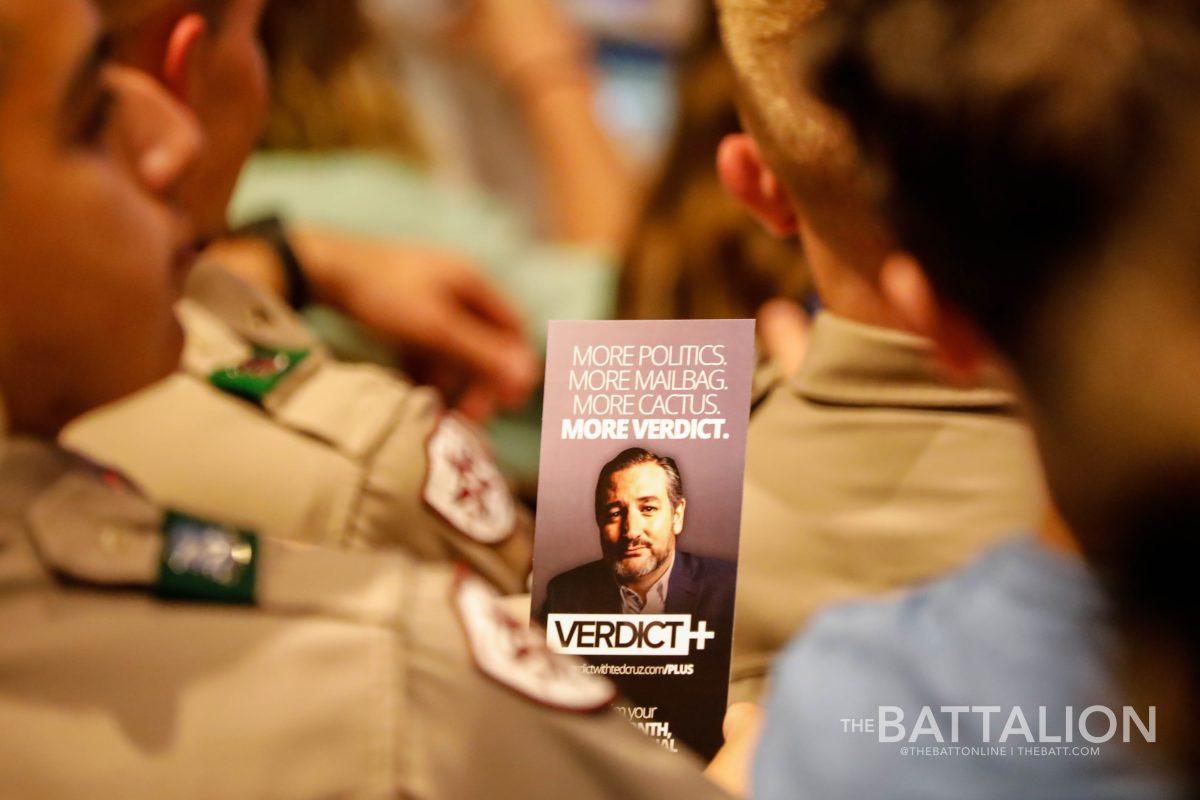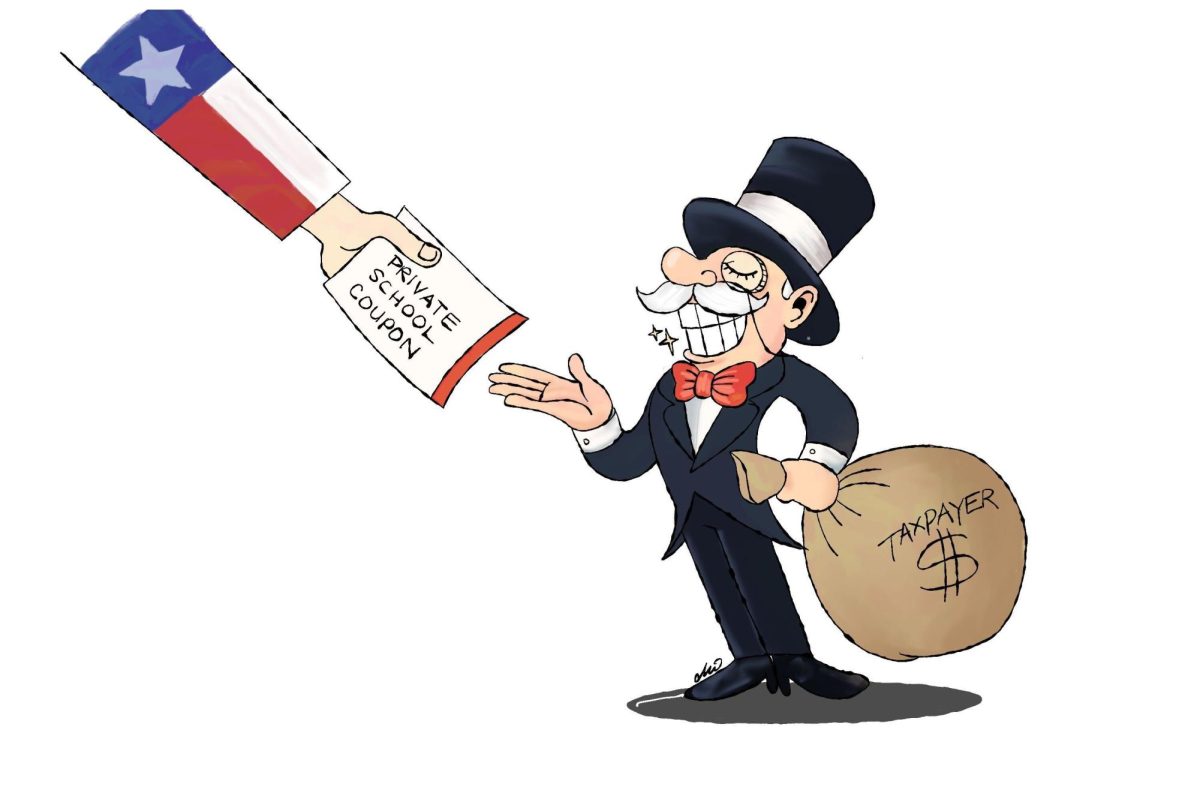The Oct. 14 Verdict podcast with Sen. Ted Cruz, Michael Knowles and Liz Wheeler, hosted at Rudder Theater, was a lot of things. It was a pep rally; it was a two-hour hate; it was a call to arms against an enemy. This adversary is all-deceiving yet completely see-through, both collective and individual, powerful and weak. It’s everyone’s favorite villain — the media. From the beginning of the podcast to its end, a wide variety of topics garnered a cacophony of hisses, even turning Aggie against Aggie.
For many students, it was baby’s first rally; all received a first-class education in “good guys versus bad guys” and “everyone is lying to you except for us.”
Lessons on journalistic chicanery included: “ESPN is a giant corporation that is a leftist advocacy organization;” “it’s when you tell [the media] what they don’t want to hear — that’s when they censor you” and “what conservatives have noticed in recent years is that the media are not just skewed, they are the opposition party. ”
In fairness, Cruz did make comments in reference to recent scandals involving Katie Couric and Joe Rogan. In the former, Couric removed controversial statements from a Ruth Bader Ginsburg interview in order to “protect” the late justice; in the latter, CNN anchors implied that Rogan had taken a horse dewormer to combat COVID-19. (On Instagram, Rogan dispelled rumors that his interview with Gupta, regarding inaccurate claims about his Ivermectin usage, vaccines and other topics, had been uncomfortable.)
But the fact that mainstream anchors make over-generalizations or omit facts does not make Cruz’s editorializing true; they do not prove a global leftist media conspiracy. During the podcast, Cruz and Knowles engaged in hyperbole and generalizations, while claiming to be distinct from established media, further polarizing Americans and making them reliant on the pair for their information and more distrustful of media in general.
This conservatives’ war on the media has tangible consequences. Violence against journalists has been substantially higher in both 2020 and 2021 than in preceding years. In 2020, police and others assaulted journalists at triple the rate of 2017, 2018 and 2019 combined. Assaults by private citizens increased the following year.
When it came time for questions, Wheeler gave Cruz and Knowles a couple freebies to start, one regarding favorite ice cream flavors. “Coconut,” Cruz said. “If you go down to the Caribbean and get fresh coconut, it’s awesome.” The man’s got experience in the tropics, you have to give him that.
And after a few opportunities for banal stories and self-flattery, Cruz received a question that he had apparently anticipated: “If Texas were to secede, what would be the best course of action?”
“I understand the sentiment behind the question. I’m not there yet.”
Yet. As one among 100 of the highest office-holders in government, that word carries an unsettling weight.
Cruz added to his answer, saying that if Democrats end the filibuster, pack the Supreme Court, make D.C. a state or “massively expand voter fraud, there may come a point where it’s hopeless. And if there comes a point where it’s hopeless; we take NASA; we take the military; we take the oil.”
To not to take Cruz seriously is to ignore what happened the last time he said “yet.” Cruz’s refusal to confirm the most secure election in our history stoked the fire that led to a violent attack on the U.S. Capitol.
All of this barely scratches the surface of the podcast. From genocide denial to Cruz’s terrible handwriting to Knowles’ weird childhood, there’s too much to cover in one sitting. Cruz, a senator who seemingly wants nothing to do with half of his constituency, cannot be allowed to divide Aggies or Texans through fear-mongering. Because once Aggies begin hissing at each other, we risk slithering ourselves into a nest of vipers.
Zachary Freeman is an anthropology senior and opinion columnist for The Battalion.
















